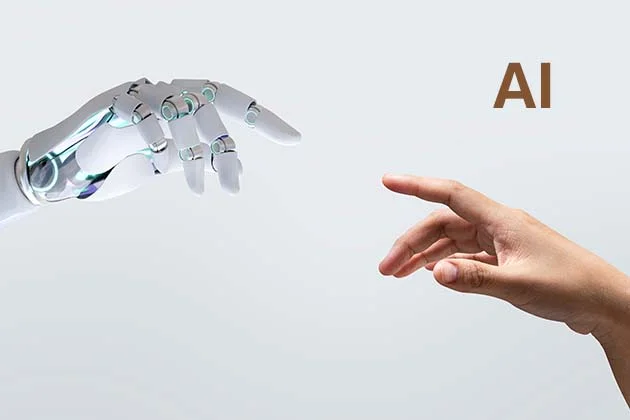Some people consider translation a skill seemingly unreachable for an ordinary human being, requiring an innate talent that only the chosen ones possess. However, this once complex process has become more straightforward thanks to constant developments in technology. Everyone with an internet connection can perform it — even those with minimal knowledge.
For the last few decades, computer software, such as CAT (Computer Assisted Translation) or CAI (Computer Assisted Interpretation) tools, have been developed to aid the translation process by reducing the time needed to complete a translation. Even though the translation sphere has seen less impact from technology than other industries, it influences it nonetheless.
But to those concerned — no, human translators will not disappear in the foreseeable future. Still, their work has been affected by AI. Here is a brief explanation of how:
Language Learning
Let’s start from the beginning. To become a translator, you must know at least one foreign language. That’s a given.
Nowadays, thanks to Artificial Intelligence, learning opportunities are endless, more fun, and more inclusive. You don’t need to pay a substantial sum of money to your tutor. Instead, numerous AI tools, apps, and software can help you become proficient in whatever language you want and perhaps become a translator later on.
That is the first step that definitely influences the translation industry in general, as more people have the opportunity to become fluent in a foreign language more easily.
Interpreting
Simultaneous interpreting is one of the most challenging skills, as it involves a lot of cognitive effort. This type of interpreting requires skills such as word fluency, verbal comprehension, intercultural and general knowledge combined with listening, analytical abilities, and short-term memory. On top of that, smoothly coordinating all of the aforementioned skills in a stressful environment can be difficult.
All the key elements necessary to perform great interpretation will work even better when enhanced by AI tools. It includes constantly training your brain, controlling your voice, and staying calm. For example, the CAI tools may assist with the preparation process and the delivery of interpretation.
These tools can help organize the information needed for the upcoming project, saving the interpreter’s time and energy. They also assist during the interpretation sessions.
If an interpreter uses CAI software, the voice-recognition and auto-transcription features help deliver the assignment. Next, the post-assignment assessment helps in even better preparation for future projects.
The Need for Workforce
One of the negative aspects of AI’s influence on the translation industry is the reduction in the employment of translators. Many companies simply won’t hire as many translators as they would have in the past.
This situation is due to the growing popularity of free software that enables translation without charging a fee for the work. Besides, software requiring a minimum human involvement also works to the translators’ disadvantage. For example, machine translation is a much faster process than the one performed by human translators, making it much more affordable.
Tools and Software
Technological advancements allow translators to improve the quality and the speed of their work. Although it may have its downsides, one cannot deny its charm.
Nowadays, hardly any company would translate a document from scratch because it requires a lot of time and effort. Instead, it is more efficient to use machine translation software with a built-in database or translation memory. Only then may a company opt for the services of human translators to review it for accuracy and enhance the text’s quality.
CAT Tools
The software that immensely improved and helped translators is CAT, a Computer Aided Translation. CAT tools are software that supports the translation process, helping to edit and manage the translations.
The invaluable part of CAT tools is the translation memory. It stores all the necessary vocabulary and sentence bases. Furthermore, it saves them for the future when it may need to do translations on similar subjects. This factor improves the translations and makes the process faster and more efficient without compromising on quality.
Voice Translators
The most well-known software for translation is Google Translate, which has a function based on artificial intelligence. The app has a voice command that listens to the speaker’s voice, recognizes their words, and translates longer sentences.
Google Lens
Google Lens is an app that uses virtual reality technology. It allows users to perform an even faster translation, which can be beneficial in numerous situations. It is a convenient tool allowing you to see the direct translation of foreign words on a product, sign, document, etc., via the camera.
AI vs. Human Translators
The translation industry has been considerably affected by AI. When discussing the future of translation influenced by technology, one might ask where a place for human translators is in this new reality. While AI has improved the speed of the translation process, it still is not on a par with human translators, who can see all the intercultural intricacies that the machines don’t.
Human translators are still relevant even in this highly technologically advanced world. AI frequently fails to adapt to the subjective elements of the language and the text. Human translators offer solutions that are perfect for a given text, looking at it from a different perspective than machines, not only seeing patterns — like the machines — but so much more in between.
That is why the translation profession will not disappear in the near future. It will be continuously affected by AI and the ever-advancing technology but in a positive way.
The Bottom Line
The effect of AI on the translation industry is undeniable. Yet, it is not a reason to panic. In fact, it could be a positive change. Soon, humans and machines may cooperate to deliver improved translations while making the process more manageable and efficient.
Although issues like the receding need for human translators might be worrying, it is not a definitive argument against technological progress in the translation industry.
Artificial Intelligence has already left its mark on our society through its impact on language learning or interpreting. Now, it is up to us to adjust to these new circumstances and make the most out of them.










